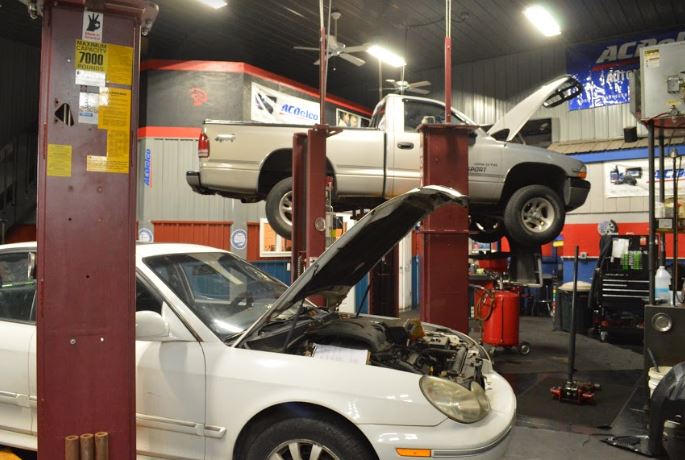All Categories
Featured

Your vehicle's engine is the heart of your car, and maintaining it in top condition is essential for optimum performance and longevity. Regular engine tune-ups are a fantastic means to preserve your automobile's wellness, boost fuel efficiency, and avoid costly repairs later on. Whether you're a car fanatic or someone that simply intends to keep their automobile running efficiently, these engine tune-up pointers will help you get the most out of your car.
- Change Glow Plugs. Ignition system play a crucial role in beginning your engine and guaranteeing smooth combustion. In time, ignition system can end up being dirty or worn, leading to misfires, minimized gas efficiency, and rough idling.
During an engine tune-up, inspect and change your ignition system if essential. The majority of vehicles need new stimulate plugs every 30,000 to 100,000 miles, relying on the kind. Consistently replacing spark plugs makes certain proper ignition and ideal engine efficiency.
- Check and Clean the Air Filter. The air filter stops dirt, dust, and particles from entering your engine. A stopped up or unclean air filter restricts air movement, creating your engine to work more difficult and shed even more gas.
Check your air filter during a tune-up and change it if it's unclean. In dirty environments or locations with hefty pollution, you may require to change the air filter a lot more regularly. A clean air filter can boost gas efficiency and prolong the life of your engine.
- Examine and Replace Belts and Hose Pipes. Belts and hose pipes are essential for different engine features, such as powering the generator, water pump, and a/c system. With time, these parts can split, fray, or put on out, possibly causing break downs.
Throughout a tune-up, check belts and hoses for signs of wear and replace them if needed. Changing these parts proactively can conserve you from pricey fixings and stop unanticipated failings.
- Clean the Fuel System. Your fuel system, consisting of the fuel injectors and fuel lines, can gather dust and carbon down payments with time, decreasing engine efficiency. Cleaning up the gas system throughout a tune-up helps improve efficiency and gas economic climate.
You can utilize a fuel system cleaner or have a specialist mechanic do a more extensive cleansing. This action is especially essential for older vehicles or cars that often drive in stop-and-go web traffic.
- Examine the Battery and Charging System. A healthy battery is essential for beginning your engine and powering electrical parts. Throughout a tune-up, inspect the battery terminals for corrosion and make sure the links are tight.
Inspect the battery's voltage and change it if it shows signs of weakness. Furthermore, have the generator and charging system tested to ensure your battery stays billed during operation.
- Change the Engine Oil and Oil Filter. Oil modifications are a fundamental component of engine maintenance. Engine oil lubricates moving components, reduces rubbing, and assists regulate engine temperature level. With time, oil becomes contaminated and sheds its performance.
Throughout a tune-up, replace the engine oil and oil filter to keep your engine running smoothly. Follow your automobile's producer recommendations for oil kind and change periods.
- Examine the Cooling System. The air conditioning system prevents your engine from overheating. In time, coolant can break down or become infected, lowering its effectiveness.
Check the coolant degree and condition throughout a tune-up, and flush and change it if required. Check the radiator, water pump, and hoses for leakages or damages. A well-maintained cooling system helps your engine operate at the best temperature and avoids overheating.
- Check the Ignition System. A faulty ignition system can create beginning problems and minimized engine efficiency. During a tune-up, evaluate the ignition coils, supplier cap, and blades (if appropriate) Replace any type of parts that show signs of wear or damage to make sure smooth and trusted engine operation.
- Listen for Unusual Noises. During a tune-up, take the possibility to pay attention for any kind of unusual engine noises, such as knocking, ticking, or hissing. These sounds can suggest underlying concerns, such as shutoff troubles, loose components, or exhaust leakages. Addressing these issues early can stop much more comprehensive damage.
- Use Top Quality Components and Fluids. When carrying out an engine tune-up, always utilize high-quality parts and fluids that satisfy your vehicle producer's specs. Affordable or wrong parts can jeopardize your engine's performance and reliability.
Verdict: A Well-Tuned Engine is Trick to Longevity. Routine engine tune-ups are crucial for keeping your cars and truck's performance, performance, and dependability. By changing used components, cleansing important systems, and resolving possible issues, you can maintain your engine running efficiently for years ahead. Whether you're doing it yourself or relying upon a relied on auto mechanic, spending in tune-ups is a clever way to protect your vehicle and take pleasure in a safer, smoother trip.
Latest Posts
Why Pick Washington Fence for Your Automatic Entrance Demands?
Identify the Indication: When to Repair or Replace Your Roof
Unlock Your Dream Fence with Flexible Financing Options